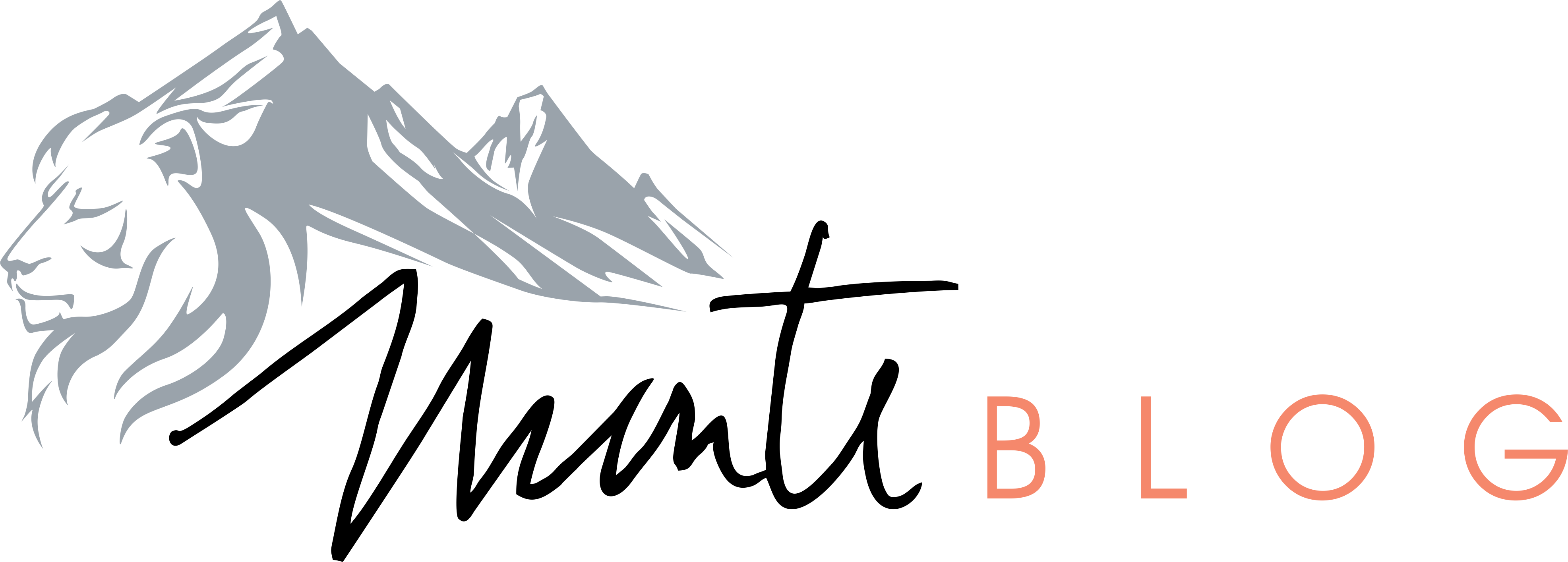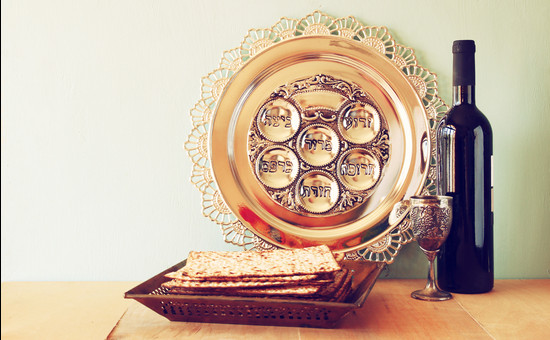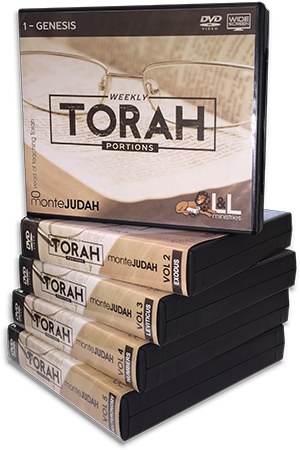Spring time is my favorite season. The trees begin to bud and produce their cool shade. The mornings are warm and inviting. Everything begins to grow again. Spring time is a favorite of many; but the reason it is my favorite time of year is because of the holiday called Passover. God calls it the beginning of months.
This month shall be the beginning of months for you; it is to be the first month of the year to you.
Exodus 12:2
Passover is the most Christian holiday I have ever observed. It has the most spiritual significance to me personally of any religious holiday. I would like to invite you to consider keeping the Passover for the first time, if you never have. And, if you have kept the Passover, I would like you to re-examine what it means in the light of what Moses wrote and what Yeshua did. It is in the keeping of the Passover that our spiritual eyes and hearts are awakened like the new growth of spring. It is in the eating of the unleavened bread, we eat the Word of God and are truly satisfied and find true contentment. It is in this feast of the Lord that we clearly see our Messiah and King. This is the feast of Redemption and we get to sit at the table with our King and Redeemer.
Speak to all the congregation of Israel, saying, "On the tenth of this month they are each one to take a lamb for themselves, according to their fathers' households, a lamb for each household."
Exodus 12:3
Did you know that Yeshua entered Jerusalem riding on a donkey on the tenth of the month just like Moses said the lamb is to enter the house? Yeshua was riding on a lowly donkey just like Moses did when he went to gather the children of Israel in Egypt. The prophet Zechariah had said that our King would be mounted on a donkey and bring us salvation (Yeshua).
So Moses took his wife and his sons and mounted them on a donkey, and he returned to the land of Egypt.
Exodus 4:20a
Rejoice greatly, O daughter of Zion! Shout in triumph, O daughter of Jerusalem! Behold, your king is coming to you; He is just and endowed with salvation, humble, and mounted on a donkey, even on a colt, the foal of a donkey.
Zechariah 9:9
It is interesting to note that the commandment to observe the Passover is for the home. Furthermore, guests are to be invited to the Passover. It is not a private affair, but one to be shared. Each observant household is to offer a lamb as the main entree.
Now if the household is too small for a lamb, then he and his neighbor nearest to his house are to take one according to the number of persons in them; according to what each man should eat, you are to divide the lamb.
Exodus 12:4
On a traditional Passover seder platter, the lamb shank bone is always represented as the lamb even though lamb might not be eaten in the meal. The unbroken shank bone of a lamb is called the Zarowa (the arm). The prophet Isaiah asks a question about this Zarowa, which is key to understanding the Passover properly.
Who has believed our message? And to whom has the arm (the Zarowa) of the Lord (Adonai) been revealed?
Isaiah 53:1
Simply put, the lamb (the Zarowa Adonai, the arm of the Lord) shank bone of the Passover is a picture of the Lamb of God. The Lamb of God is the sacrifice promised by our father Abraham to Isaac to be offered on Mount Moriah. It is the sacrifice taught by Moses, separate from the law and yet in accordance with the law, for willful, defiant sin. It is the sacrifice that passes us from death to life, and those who have life are recorded in the Lamb's book of life.
As a believer, this is important to you. Your annual observance of the Passover is DIRECT evidence concerning your understanding of who the Lamb of God is and your level of spiritual maturity. Failing to observe the Passover is evidence of two things. Either you have not been taught or you are in willful disobedience. The message is clear: only those who are in the house with the Lamb's blood on their door posts are spared when the Angel of the Lord comes with judgment. Knowing the Redeemer and His work as the Lamb of God and knowing about redemption, but not experiencing it, are two different things. Standing outside and observing those who are keeping the Passover affords you no protection from the Angel of the Lord.
Your lamb shall be an unblemished male a year old; you may take it from the sheep or from the goats. And you shall keep it until the fourteenth day of the same month, then the whole assembly of the congregation of Israel is to kill it at twilight.
Exodus 12:5-6
There has always been some controversy about the timing of the Passover. Is it the eve of the 14th day, the day before the feast of Unleavened Bread; or, is it concurrent with the first day of the feast of Unleavened, the 15th of the month? Is Passover separate from the feast of Unleavened Bread or the first day of it? Traditionally, the Jewish community has connected the two and keep the Passover seder meal on the eve of the first day of unleavened. I am not convinced that traditional observance is correct. The eve of the 14th is the day before the first day of unleavened.
In parallel, there has also been some controversy about the timing of Yeshua's death. We know He was prophesied to be buried three days and three nights.
…for just as Jonah was three days and three nights in the belly of the sea monster, so shall the Son of Man be three days and three nights in the heart of the earth.
Matthew 12:40
If you have the crucifixion on Friday after a Thursday evening Passover meal and Yeshua is buried before sundown Friday, then how can He be seen on Sunday morning (the first day after Sabbath) and it be called three days and three nights? By Jewish count, it can be called three different days, but it is not three days and three nights. We definitely know the day He arose, therefore an argument can be made for an earlier Passover observance (maybe the evening of the 14th instead of the 15th). Maybe, Yeshua observed the Passover meal on the evening of the 14th (Tuesday night), was arrested and crucified on Wednesday day. Wednesday then would be "the day of preparation" for the first day of the Feast of Unleavened bread which begins on the 15th (Wednesday night). Moses instructed that the first and seventh days of unleavened bread are high Sabbaths (days of holy convocation with no labor).
Then on the fifteenth day of the same month there is the Feast of Unleavened Bread to the Lord; for seven days you shall eat unleavened bread. On the first day you shall have a holy convocation; you shall not do any laborious work. But for seven days you shall present an offering by fire to the Lord. On the seventh day is a holy convocation; you shall not do any laborious work.
Leviticus 23:6-8
Now listen to John's account of when Yeshua was taken from the cross after His death.
The Jews therefore, because it was the day of preparation, so that the bodies should not remain on the cross on the Sabbath (for that Sabbath was a high day)…
John 19:31a
Yeshua died and was buried on the same day. He died on the Passover and was buried just before the evening began. In Jewish thinking, the new day begins at sundown. Yeshua died on the day of preparation before the high Sabbath (the first day of unleaven). He would have been in the grave Wednesday night, Thursday day, Thursday night, Friday day, Friday night, Saturday day, and He would have been seen Sunday dawn (the day after the Sabbath). This is a combination with three nights (Wednesday, Thursday, and Friday) and three days (Thursday, Friday, and Saturday). Remember the counting of the days in Jewish thinking is evenings and then mornings. As Messianic Jews, we may need to seriously reconsider the date we keep the Passover in our homes. Moses instructed us to keep it on the eve of the 14th, not on the eve of the 15th (the first day of unleaven) as the traditional Jewish community follows.
Moreover, they shall take some of the blood and put it on the two door posts and on the lintel of the houses in which they eat it. And they shall eat the flesh that same night, roasted with fire, and they shall eat it with unleavened bread and bitter herbs. Do not eat any of it raw or boiled at all with water, but rather roasted with fire, both its head and its legs along with its entrails. And you shall not leave any of it over until morning, but whatever is left of it until morning, you shall burn with fire.
Exodus 12:7-10
When the ancients placed the blood on the door posts, a particular Hebrew letter is formed the letter Het [ח]. This letter means life. You may have heard of the common Jewish toast "Le Chaim" (to life!). The blood on the door posts was a sign to the Angel of the Lord indicating which houses had life, and death passed over them. Today, we understand the greater work of Yeshua as the Lamb of God in passing us from spiritual death to eternal life.
Truly, truly, I say to you, he who hears My word, and believes Him who sent Me, has eternal life, and does not come into judgment, but has passed out of death into life.
John 5:24
Why don't we put the blood on our door posts? That event only took place in Egypt. We do as the descendants of Israel do. It is understood that the four Passover cups of wine symbolize the blood of the Lamb. Those four cups tell the story of the Passover so that we might remember and teach our children.
Say, therefore, to the sons of Israel, "I am the Lord, and I will bring you [the cup of Sanctification] out from under the burdens of the Egyptians, and I will deliver you [the cup of Instruction] from their bondage. I will also redeem you [the cup of Redemption] with an outstretched arm and with great judgments. Then I will take you [the cup of Praise] for My people, and I will be your God; and you shall know that I am the Lord your God, who brought you out from under the burdens of the Egyptians."
Exodus 6:6-7
In the traditional seder, two cups are before the meal and two cups follow the meal. This is why the Messiah took the third cup after the supper, the cup of Redemption and used it for the New Covenant.
In the same way He took the cup also, after supper, saying, "This cup is the new covenant in My blood; do this, as often as you drink it, in remembrance of Me."
I Corinthians 11:25
This was the Redeemer presenting Himself at the feast of Redemption (Passover) using the cup of Redemption symbolizing the blood of the Lamb of God. Yeshua was the Lamb of God about to be sacrificed for us.
The Passover meal also includes unleavened bread (matzah) and bitter herbs. The unleavened bread is called the bread of haste" because Israel had to leave Egypt quickly. There was no time to let the daily bread rise and become leavened. The matzah also speaks of the sinless nature of Yeshua. Leaven is a spiritual symbol of sin. This is why Paul instructs us.
Clean out the old leaven, that you may be a new lump, just as you are in fact unleavened. For Christ our Passover also has been sacrificed. Let us therefore celebrate the feast, not with old leaven, nor with the leaven of malice and wickedness, but with the unleavened bread of sincerity and truth.
I Corinthians 5:7-8
Traditionally, three pieces of matzah are used for the formal part of the Passover seder. They are called the "Unity." Different teachings are offered to explain the use of these three pieces of matzah. However, let me relay exactly what is done with the bread and you can decide for yourselves what they mean. First, the second piece of the matzah is broken in half. The Abest part" is wrapped in a clean linen cloth and placed separate from the Passover table. A pillow is put over the wrapped bread. It is said that the bread has been buried and a Astone" is covering it. This piece of bread is called Athe Afikoman". The piece of bread is considered to be the best part of the Passover, it serves as the dessert for the meal. The remaining three pieces of matzah are used in telling the Passover story and for eating bitter herbs. Generally, the father or leader of the Passover eats the first piece and the other half of the second piece and the third piece is shared by others at the table. When eating bitter herbs (usually horseradish), one learns to eat more matzah than bitter herbs; therefore, the bread "comforts" us.
Immediately after the supper, when it is time to drink the third cup (the cup of Redemption), the leader of the Passover calls for the Afikoman (the wrapped and buried piece of matzah) to come forth". But, this is where a traditional game is played with the children. During the meal, they are to remove and hide the Afikoman. Therefore, when the leader calls for the Afikoman to come forth, the children report, "The stone [the pillow] has been moved and all we found was this linen cloth."
For those of us who see the resurrection of Yeshua from the grave being foretold, we can see God's great plan of salvation in the Passover story. Maybe this is why Yeshua took the Afikomen at the Last Supper and referred to His own body broken for us.
For I received from the Lord that which I also delivered to you, that the Lord Jesus in the night in which He was betrayed took bread; and when He had given thanks, He broke it, and said, "This is My body, which is for you; do this in remembrance of Me."
I Corinthians 11:23-24
The word "Afikoman" is also significant in its meaning. In the Hebrew it means, "It is finished." This was the last word spoken by Yeshua as He died.
When Jesus therefore had received the sour wine, He said, "It is finished!" [Afikoman] and He bowed His head, and gave up His spirit.
John 19:30
The bitter herbs speak not only of sorrow and bitter hardness from bondage. They also speak of betrayal. Yeshua used the bitter herbs to designate that it was Judas who would betray Him.
Jesus therefore answered, "That is the one for whom I shall dip the morsel and give it to him." So when He had dipped the morsel [the matzah with bitter herbs], He took and gave it to Judas, the son of Simon Iscariot.
John 13:26
The instruction of Moses concerning the Passover is personal instruction.
Now you shall eat it in this manner: with your loins girded, your sandals on your feet, and your staff in your hand; and you shall eat it in haste-- it is the Lord's Passover.
Exodus 12:11
For those of us who know Yeshua, we know our loins are to girded with truth and feet shod with the Gospel. We know that we go by the authority of God with His Shepherd's staff in our hand. We remember God's great work of Salvation in Yeshua our Messiah. We remember that God delivered us with "an outstretched arm" when He was hung from the cross of a tree.
Now this day will be a memorial to you, and you shall celebrate it as a feast to the Lord; throughout your generations you are to celebrate it as a permanent ordinance.
Exodus 12:14
If anyone tells you that the Passover is not for Christians and that it is not done anymore, then you are talking to someone who does not know who the Lamb of God is or what it means. You are talking to someone who knows about some religious things but has never sat at the Feast of Redemption and experienced the Lamb of God, nor does he realize that he is outside looking in.


